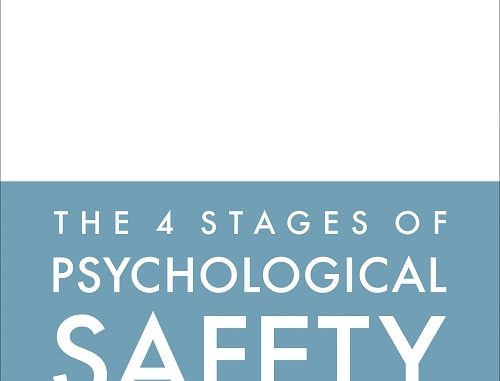
Power dynamics between humans define an enormous part of our interactions. This is especially true in a professional or organization setting where the stakes are much more involved. Men and women are working to provide for themselves and families alike, incredible amounts of money are often at stake and the individual who is affable and clever outside of work may find themselves fearful or feeling at risk. Such moments stifle personalities and creativity alike. Timothy Clark’s The 4 Stages of Psychological Safety: Defining the Path to Inclusion and Innovation recognizes this and provides us with one of the most important guide books I can recall for recognizing and addressing such harmful behaviors and phenomena.
MORE ON “LEADER FACTOR”: www.leaderfactor.com/
His four stages are Inclusion, Learner, Contributor, and Challenger Safety and serve as his central design for the book. Clark concludes the work with a section on Avoiding Paternalism and Exploitation that acts as a crowning touch of sorts for The 4 Stages of Psychological Safety. The four “chapters” carry readers through a journey of recognizing the enormity of this issue and its pervasive presence in our world with clarity and concision. He layers each part with a number of brief additions dubbed Key Concepts or Questions, occasional charts, and there is an assortment of lists added as well.
The book is brief and moves at a brisk pace despite the weighty material. Clark is a natural writer capable of fluently mixing his academic observations with literary quotes and references, nods to philosophy, and a number of personal reflections many readers will find quite engaging. Those more inclined to reading academic texts distancing themselves from readers may find the latter addition uncomfortable, but there are other readers who will appreciate the intimacy in Clark’s approach. Others still will find fault with his numerous artistic references as they may strike one as a bit of showing off, but it far from the case. They illuminate Clark’s ideas in vivid fashion.
PURCHASE LINK: www.amazon.com/Stages-Psychological-Safety-Inclusion-Innovation/dp/1523087684
Clark is the founder and CEO of LeaderFactor, a prominent consulting and coaching organization whose work with a staggering array of some of the world’s top organizations and businesses bears out the merits of his approach. The senior leadership of such corporations do not take such things lightly and waste no to little time dealing with individuals who fail to produce genuine results.
There are two final aspects of the book lending it great weight. The first is the clear amount of research driving his ideas and conclusions. The second is the humanity throughout the text. Clark clearly understands his fellow man and woman and his concern for the issues at hand makes him a powerful messenger for the topic. He has no axe to grind, never lectures, and instead provides us with a wide open view of psychological safety and its ramifications. Timothy Clark’s The 4 Stages of Psychological Safety: Defining the Path to Inclusion and Innovation is far more than just a guide through this area; it is a memorable look at the author as well.
Clay Burton
